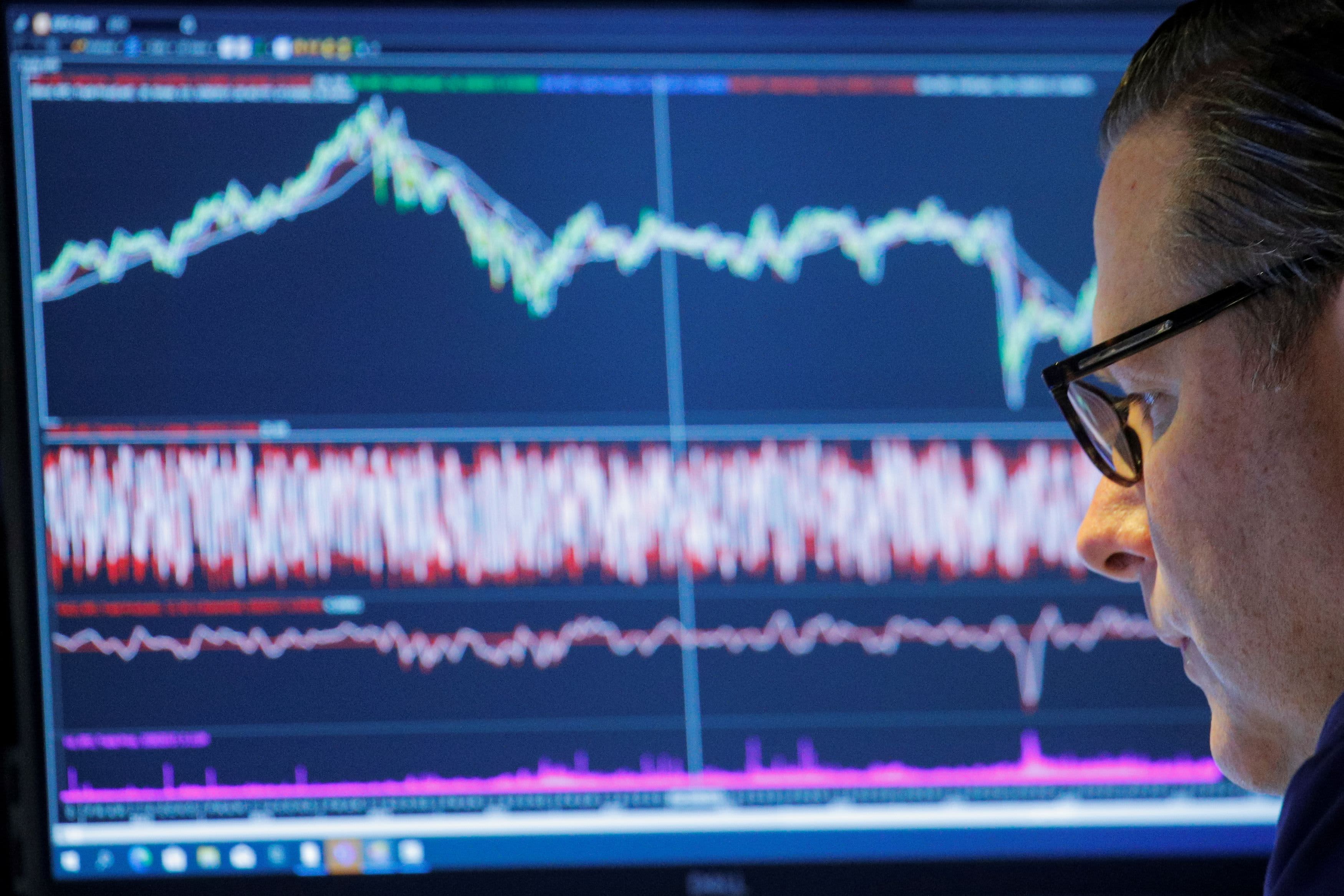
A trader works inside a booth on the floor of the New York Stock Exchange (NYSE), November 8, 2021.
Brendan McDermid | Reuters
LONDON — Stock markets could be facing several weeks of volatility following the emergence of the omicron Covid-19 variant, but strategists and economists are cautioning investors against hasty action.
Global stocks sold off sharply on Friday as news of the variant, and its potentially concerning mutation profile, spread. U.S. and European equities recouped some losses on Monday but futures turned lower again Tuesday amid fears about the efficacy of vaccines when faced with the omicron variant.
Health officials have said it could take several weeks to understand whether the new strain can evade existing vaccines and antibodies, and how severely it affects those infected.
In the meantime, however, many countries have imposed new travel restrictions, and strategists suggested on Monday that the market will remain attuned to ongoing research into the variant in the near term, sparking volatility.
But although Friday marked the worst pullback in equity markets of 2021, strategists and economists do not yet see a case for a sustained decline, and have broadly advised clients to focus on the long-term fundamentals of the recovery.
Financials, health care, energy
Mark Haefele, chief investment officer for global wealth management at UBS, said in a note Monday that omicron was unlikely to warrant a change in the belief that the global economy is on a bumpy road to recovery, and that growth will be robust.
“We advise against hasty shifts in investment strategy and recommend staying invested. The market reaction may have been exacerbated by relatively low liquidity in Thanksgiving week, and volatility could remain elevated in the days to come as systematic investors readjust positioning,” Haefele said.
“A period of market volatility after such a strong rally should also not come as a major surprise. But it does serve as a reminder of the value of being diversified across markets and sectors.”
On a sector basis, Haefele is positive on financials and energy. He expects oil prices to remain elevated through 2021 and 2022, with international benchmark Brent crude hitting $90 per barrel by March.
“Financials were hurt by falling yields on Friday, but following the strong 3Q [third-quarter] reporting season, sector earnings have been upgraded and recent European Central Bank data point to an increase in private sector credit growth,” Haefele added.
Haefele also recommended that investors seek opportunities in health care stocks, which he argued offer “both defensive and growth opportunities.” He said the strategic outlook for the sector remains strong and valuations are attractive following recent losses.
“A catch-up is overdue, in our view. We believe this has become more likely as uncertainty surrounding U.S. drug pricing is resolved,” Haefele said.
UBS has increased its exposure to alternatives such as pockets of private equity and hedge funds which strategists think are well-placed to offer risk-adjusted returns in falling markets. Haefele also recommended investors look for “unconventional sources of yield,” such as private credit or dividend-paying stocks.
Time for a pullback?
George Lagarias, chief economist at Mazars in London, said in a note Monday that while it is difficult to say whether Friday’s pullback was an overreaction, the evidence suggests that investors should wait it out before engaging in talk of a correction.
“Global stocks had already gained almost 21% year-on-year, and even if the event hadn’t happened, it would not have been the worst time for market participants to take some profit off the table,” Lagarias said.
With ample liquidity in the markets, he suggested that investors may look to take advantage of lower valuations and put their money back to work. This trend seemed to emerge in Europe and the U.S. on Monday, as markets rose.
This sentiment was echoed by Berenberg Chief Economist Holger Schmieding, who told investors on Monday that the surge in uncertainty explained Friday’s markets reaction, but the long-run fundamentals of the recovery were more likely to be delayed than derailed.
Schmieding acknowledged that the news flow could get worse before it gets better in the coming days, but said it is unlikely to dramatically shift central bank approaches with regard to monetary policy tightening.
“As we have argued since mid-March 2020, the pandemic does not justify a dramatic and lasting re-rating of the value of the productive capacity of major economies as expressed in the overall levels of equity prices,” Schmieding said.
“In short: we do not see Omicron as a reason for a sustained bear market.”




